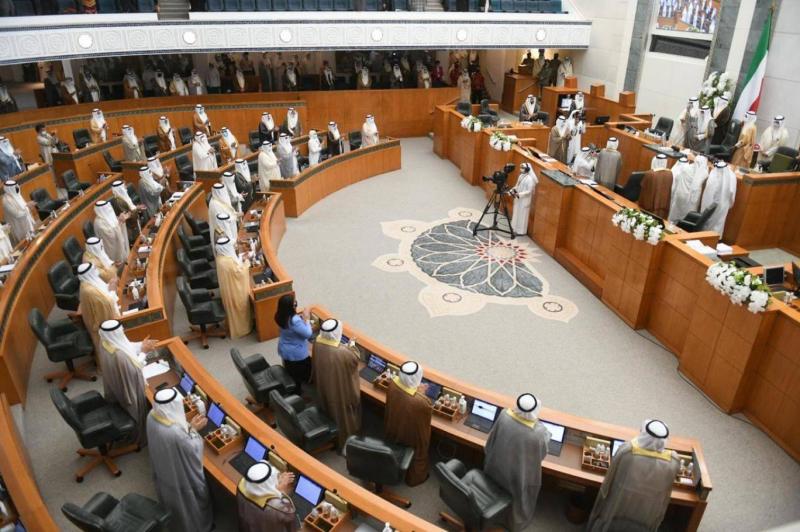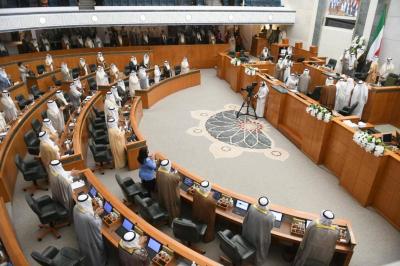On Wednesday, the Kuwaiti National Assembly (Parliament) approved a legislative amendment that prevents the Constitutional Court from annulling elections after they have taken place and requires it to address electoral appeals before announcing results. The official news agency reported that the legislation, which was approved in two readings with government-parliamentary consensus, was endorsed by 57 members with one objection out of 58.
The new amendment to the Constitutional Court Law specifies a period of only ten days for anyone wishing to appeal against the decree dissolving the parliament or the decree calling for elections, and it obliges the Constitutional Court to rule on these appeals within another ten days. Additionally, it prohibits the Constitutional Court from considering the decree dissolving the National Assembly or the decree calling for elections after the election results are announced.
Justice Minister Fahd Al-Ruqbah stated, "This amendment will prevent the repetition of what we have witnessed in terms of the annulment of the council in previous years," emphasizing that the government supports this proposal. He added that the amendment contributes to safeguarding the National Assembly after elections and stabilizing legal positions by organizing the timing of appeals and rulings related to the decrees dissolving the National Assembly and calling for elections, as they are closely linked to the electoral process.
Constitutional expert Dr. Mohammed Al-Faili viewed today's developments as a "natural reaction" to the annulment of three previous electoral processes. He told Reuters, "When danger arises from a certain entity, all focus shifts to that entity, as the threat has emerged from it three times. We are talking about rulings that annul the entire electoral process for reasons beyond the control of the voter or the candidate." He added that elections are often annulled due to errors that are commonly known in advance but cannot be addressed prior to the electoral process.
For the amendment to become law, it requires the approval of the Emir of the country or his deputy, or at least the absence of objection during the constitutional period of thirty days from the date it is submitted to him by the National Assembly.




